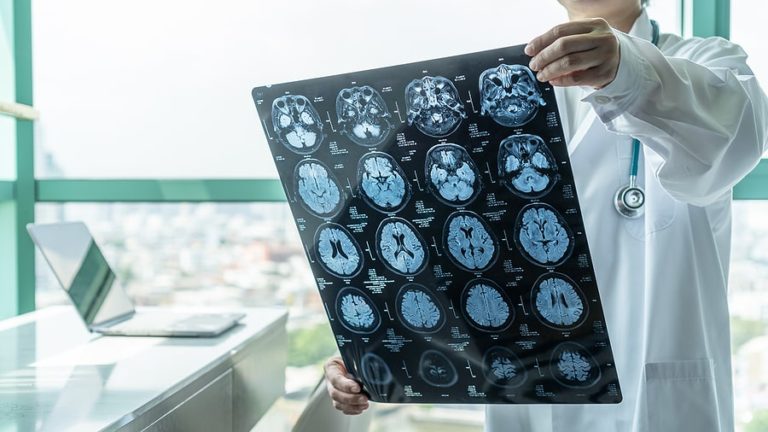Ontario Traumatic Brain Injury Lawyers
- 550+ Google 5-Star Reviews
- $1 Billion won over 15 years
- Won’t settle for low offers, not afraid to fight for max value
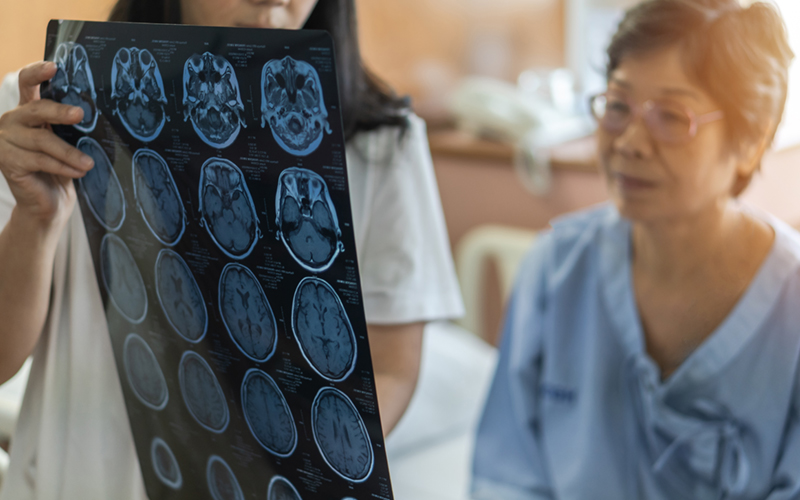
Get a Free Case Evaluation
No fees until we win!
All San Diego Case Types

Personal Injury

Brain Injury

Car Accident
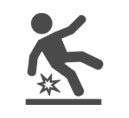
Slip & Fall

Truck Accident

Wrongful Death
Ontario Traumatic Brain Injury Lawyers
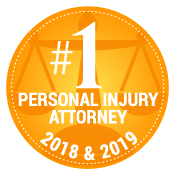
Ontario, California is a busy place. Located just 35 miles from downtown Los Angeles, the city employs more than 119,000 people and sees around 5.5 million passengers through its international airport each year. For all of the opportunities that Ontario offers to its residents and guests, however, everything from car accidents to sports injuries can cause brain injuries there.
If you have suffered a brain injury in Ontario as the result of someone else’s careless or reckless actions, read on for more information about how to recover damages through a Ontario Traumatic Brain Injury Lawyer. For more information about your legal rights as they relate to your specific situation, contact Gomez Trial Attorneys today for a free consultation.
What Is a Traumatic Brain Injury?
The brain is one of the most important organs of the body, as it is responsible for controlling all of the body’s voluntary and involuntary responses. However, despite its importance, the brain has only a limited ability to recover from damage sustained by injury. This means that many of the disabilities created by the injury will last throughout the injured individual’s life.
The brain is made up of several segments, called lobes, and each lobe controls specific functions. The disabilities that an individual experiences vary depending not only on the severity of the injury, but the section of the brain that has been injured.
A look at each lobe, its primary functions, and the disabilities caused by an injury to that area of the brain is as follows:
- Frontal lobe: The frontal lobe, located in the front of the brain, controls such function as attention, memory, concentration, organization, emotion, behaviors, and impulses, planning, judgment, and the ability to speak. An injury to the frontal lobe can result in difficulties with behavioral and impulse control, as well as difficulty speaking or recalling events.
- Cerebellum: Located in the back of the brain, just above the brainstem, the cerebellum is responsible for balance, coordination, visual perception, and skilled motor activity. An injury to this part of the brain can cause the sufferer to lose balance and coordination
- Temporal lobe: Located on the side of the brain in the temple area, the temporal lobe is responsible for functions such as memory, sequencing, the ability to understand spoken language, and organization. Suffering an injury to this part of the brain can result in difficulty with various tasks.
- Occipital lobe: The primary function of the occipital lobe, located in the back of the brain just above the cerebellum, is to control vision. Injuries to the occipital lobe can result in difficulty seeing or perceiving the size and shape of objects.
- Parietal lobe: The parietal lobe, located in the top portion of the brain, controls functions such as depth perception, the identification of size, shape, and colors, visual perception, and the sense of touch. An injury to the parietal lobe can cause difficulty with the five senses of sight, smell, hearing, taste, and touch.
- Brainstem: The brainstem controls the body’s involuntary responses, such as breathing, heart rate, alertness, and sleep/wake cycles. Damage to the brainstem is often irreversible and can result in death, as the body cannot survive the loss of involuntary responses without the assistance of mechanical life support.
In addition to differing disabilities caused by damage to certain areas of the brain, the disabilities acquired through a brain injury also depend on the side of the brain in which the injury occurred.
For example:
- The left side of the brain controls the right side of the body, as well as traits such as analysis, logic, precision, detachment, and literal thinking. Suffering a brain injury on the left side of the brain can cause difficulties speaking or understanding spoken language, catastrophic reactions such as depression or anxiety, impaired logic, and decreased control over the movement of the right side of the body.
- The right side of the brain controls movement on the left side of the body, as well as traits that include creativity, imagination, intuition, empathy, and figurative thinking. An injury to the right side of the brain can result in decreased control over the left side of the body, visual-spatial impairment, visual memory deficits, altered creativity and music perception, and the loss of “big picture” type thinking.
While brain injuries are defined in terms of severity as mild, moderate, and severe based on the individual’s level of consciousness at the time medical attention is sought as well as the ability to see the injury on diagnostic scans, there is never anything truly “mild” about a brain injury. Even a concussion (often regarded as a “mild” traumatic brain injury), can result in permanent disabilities including chronic pain and loss of memory.
Common Causes of Traumatic Brain Injuries
There are two types of acquired brain injuries, traumatic and non-traumatic.
Traumatic brain injuries are caused by a bump, blow, or jolt to the head or body.
The most common causes of a traumatic brain injury include:
- Falls: Falls are of particular concern for the youngest and oldest among the population, and are the leading overall cause of traumatic brain injuries. Falls can occur from elevation or on the same level and are often the subject of work-related accidents, particularly in the construction industry. Falls also occur frequently as a result of premises liability accidents due to a property owner’s failure to ensure that his or her property is free from hazards such as wet or slippery floors, defective staircases, and objects in the walkway.
- Motor vehicle accidents: Accidents involving cars, trucks, bicycles, pedestrians, boats, aircraft, trains, or buses are also one of the most common causes of traumatic brain injuries.
- Violence: Traumatic brain injuries can also be caused by violent acts, including assault, domestic violence, and child abuse. One common form of child abuse that results in a brain injury is shaken baby syndrome, where an infant is shaken violently by a caregiver, generally because the child will not stop crying.
- Sports and recreation: Activities such as contact sports including football, boxing, or soccer, as well as recreational activities such as diving or surfing can also result in traumatic brain injuries.
- Explosive blasts and other combat-related activities: Military personnel have a high risk of traumatic brain injuries that result from combat-related activities such as explosive blasts, transportation activities, and gunshot wounds. It is not entirely clear why explosive blasts can result in brain injuries, but the pressure wave caused by a blast may travel through the brain and disrupt brain function.
Non-traumatic brain injuries include damage to the brain caused by oxygen deprivation or exposure to toxic chemicals. Some of the most common causes of non-traumatic brain injuries include:
- Stroke, tumors, or other medical conditions.
- Seizures.
- Neurotoxic poisoning from exposure to substances such as carbon monoxide or lead.
- Electric shock.
- Lack of oxygen as a result of drowning or choking.
- Drug overdose.
Traumatic Brain Injuries Often Present Serious Complications
When an individual seeks treatment for a brain injury, the immediate concerns of medical professionals include securing an airway, stopping bleeding, and determining the complications that are present. Brain injuries pose a high risk for serious complications that, if not promptly treated, can result in further brain damage and even death.
Some of the common complications of a brain injury that generally appear early after the injury occurs include:
- Altered consciousness: A brain injury can result in a consciousness disorder, including a coma, vegetative state, minimally conscious state, or even brain death. Therapy to address disabilities caused by a brain injury cannot begin until an individual is completely alert and aware of his or her surroundings. Unfortunately, many brain injured individuals have a permanently altered level of consciousness that prevents them from receiving the advantages of these therapies.
- Seizures: Seizures often appear initially immediately after a severe brain injury, but can delay presentation for months or years after the injury takes place. Often, physicians will provide anti-seizure medication during early treatment to avoid this complication. Recurring seizures after a brain injury are referred to as post-traumatic epilepsy.
- Hydrocephalus: This condition is defined by a buildup of cerebrospinal fluid on the brain as the body’s response to the injury. This increased fluid buildup is dangerous as, if left unchecked, it creates an increase of pressure inside the skull that can result in further damage. Often, individuals suffering from hydrocephalus after a brain injury will have a shunt surgically placed to drain this fluid away from the brain to other parts of the body.
- Infections: Infections of the protective tissue surrounding the brain (known as meninges) is common in traumatic brain injuries that involve penetration of an object through the skull, and into the brain. Other common sources of infection include the urinary tract. An infection can occur due to other injuries the person suffered as well as immobility and altered consciousness that can render the individual unable to express that they are not feeling well. The most common sign of infection in brain injured individuals is a fever, which can have other causes including damage to the part of the brain that controls body temperature.
- Blood clots: Blood clots can result from damage to the vessels in the brain. It can also be caused by surgical procedures and immobility following the accident. A blood clot appearing in the deep veins of the legs or arms is of particular concern, as it can result in a potentially fatal condition called a pulmonary embolism, which occurs when a piece of the blood clot breaks free and travels through the bloodstream to the lung.
If you or a loved one experience any of these complications as the result of the negligent or reckless behavior of someone else, contact Gomez Trial Attorneys today.
Traumatic Brain Injuries Affect Every Facet of Life
Medical treatment alone following a brain injury can produce lifetime costs of between $85,000 to $3 million. Approximately 53 percent of the homeless population suffers from a brain injury. Some of those injuries are a direct result of the often dangerous conditions that accompany homelessness. For others, the extreme financial and emotional toll of the injury itself is the catalyst for homelessness.
Brain injuries affect every facet of the sufferer’s life, including:
- At work: Approximately 60 percent of brain injured adults will be unemployed two years after the injury occurs. For those who return to some type of gainful employment, training will often be required to obtain new skills that allow the individual to work despite his or her disabilities. For those who return to the job they had before the injury, accommodations are often necessary and include shortened workdays, fewer work hours, longer breaks, and lighter workloads.
- At school: Contrary to popular belief, children do not fare any better after suffering a brain injury than adults do. However, depending on the age of the child when the injury occurs, it can take years to fully realize the impacts of the injury. During that time, the child may require accommodations to obtain an education. Common accommodations include the provision of a paraprofessional to keep the child organized and to assist with behavioral issues, modified testing, and instructional sessions that are recorded to assist with memory issues.
- In society: Many brain injured individuals find that they can no longer participate in activities they previously enjoyed due to impulse control issues, memory loss, and mobility problems following the injury.
- At home: The family members of someone with a brain injury often find their relationship with that person is dramatically changed after the injury. This contributes to the isolation that family members often feel as seemingly no one in their social group is dealing with the issues that they experience on a day-to-day basis.
Recovering Damages After an Ontario Traumatic Brain Injury
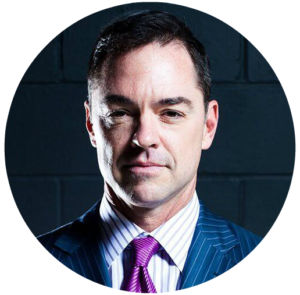
If you have suffered a brain injury due to an Ontario accident that was caused by someone else’s careless or reckless behavior, you could recover damages related to your injury through a personal injury lawsuit. For more information about this legal process or to talk to a brain injury attorney about your case, call Gomez Trial Attorneys at (619) 237-3490 or contact us online.
Our Process... Easy as 1. 2. 3!
Call Us
We will determine your case and submit
We get to work
You will get regular update from us
Win
Collect your compensation

550+ 5 Star Reviews
-
“John helped me find doctors, he referred me to his neurologist, his physical therapist, I mean, anything I needed he was right there, every step of the way. I couldn’t have asked for a better result from all of this, I would absolutely recommend Gomez Trial Attorneys.”
-
“During the time I was working with Gomez Trial Attorneys, they treated me very, very well. 100% of the time, they believed me, and they were very compassionate. They felt sorry for what happened and they understood the therapy process.”
-
“They held my hand the whole time and kept me in the loop every aspect of my case which was very refreshing to me. They helped me get my settlement offer as fast as possible and I was able to keep my farm”
-
“The Gomez experience was the best experience it could be for me really, only positive things to say. They really were there every step if the way. Thanks to Gomez Trial Attorneys my dad is able to support my family as a single father”
-
“He opened the door for me to join his firm to help other brain Injury survivors and I never met another firm who is like this who was so understanding and caring who took the extra step and walked the extra mile with their clients and this is the best”
-
“I am very satisfied with the outcome with Gomez and I would definitely recommend Gomez to anybody, we tell people all the time, Get Gomez! They are really thorough with everything and they make you feel real comfortable.”
-
“Just helped us through, guided us through, I kept notes all those years, we had questions all the time and they would always keep us informed of what was going on. They just unlayered it, layer by layer, I’ve never seen anything like them. Thank God for them.”


